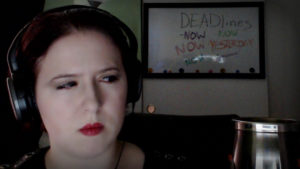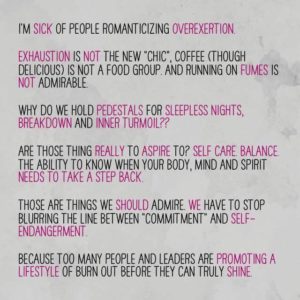He is horrible — horrible beyond anything you can imagine — but wonderful. He haunts one for hours afterward. I am still shuddering at what he showed.
-H.P Lovecraft, regarding Nyarlathotep.
H.P Lovecraft could spend thirty something pages saying “Guys, no really, this thing is just so awful you wouldn’t even believe me. It’s horrible and beautiful and awful and wonderful and if I even looked at it I would be driven mad.”
Lovecraft didn’t come out and throw the monster screaming in your face like some cheap scare-video. He didn’t let you get jaded to it by constantly showing blood-gore-blood-gore until the reader is going, “Oh. Let me guess. This room is bloody too? Oh look, a foot. Huh. Yawn.”
Oh, no.
There’s something to be said for anticipation and the limitless capacity of the human imagination. Just ask anyone with a fear of needles and an impending hospital visit. Or you’ve just sent a potentially embarrassing message and you keep seeing the ellipses start and stop as you wait for their reply. Or you’re expecting a very important phone call. Or you get a phone call that wasn’t expected at all.
Building up something without actually showing it can create dread, and dread can be a very powerful tool.
Dread is a more sinister emotion in that it seeps in slowly and festers in a way that is almost maddening; You haven’t seen anything yet, so what is there to be scared of? You don’t know what is going to happen, so why assume it is going to be bad? Because someone or something planted the seed that it would be awful, and your own imagination watered that baby with anxiety and trepidation until it blossomed and it’s grinning and begging you to feed it, Seymour.
In The Punisher movie, there’s a scene where a man is strung up and Castle is talking about how he’s going to burn the man with a welding torch. He shows the torch to him. Lets him hear the roar of the fire as the torch starts up.
Then Castle explains what it can do to him. He builds up the idea that this is going to hurt and will mess him up something awful. He will feel nothing at first, saying the nerves will be fried away, and he does nothing. He tells him he will smell burning meat, and then sears a steak nearby. He tells him he will feel cold…And then what does he do?
He touches a cold Popsicle to his back (likely cherry flavored). A harmless frozen sweet treat meant for children on a hot summer’s afternoon. The tortured man absolutely loses it and starts screaming in agony.
Why? Because he believed him. Castle built up all this anticipation and dread such that an unpleasant icy feeling was perceived as torture comparable to something Spetsnaz came up with.
So how do you do this in writing?
Plant the seed. Tell them there’s something behind the door that goes to the basement, and most people are going to assume it’s probably an Eldritch horror crafted from their childhood nightmares instead of a surprise birthday party. And then show hints that they’re right.
…about the horror, not the birthday party. I’d love to read that story though.
Weird sounds that could be explained by something benign, but they don’t know. Weird smells. Weird sensations. It could be something perfectly normal, but they don’t know that for sure, and until they know, they’re going to fear.
This is the growls and shadows outside your tent wall when you’re camping.
This is finding one piece of a larger puzzle that something bad happened here, like a pool of blood oozing out from underneath a door.
Do you want to open that door?
(If you answered yes, you might be a horror writer and we should be friends.)
But a better question is: can your character afford not to open that door? Write so that they must confront this thing that they don’t want because not taking action also leads to bad circumstances.
They found that pool of blood? Well, who was hurt? Are they still here? Where are the children?
Evil is coming, and not taking action won’t make it better.
In closing, showing horror and gore and pain can be a useful tool, sure. But sometimes it’s what you don’t see that’s really scary. Because how can you address it if you don’t know?
I leave you with the most succinct example I can think of from Futurama:
“Did he at least die painlessly? …to shreds you say.” -Professor Farnsworth


